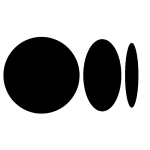Medical Records Management software is a crucial tool across the healthcare industry, offering a comprehensive solution for managing and maintaining patient records. This category of software is applied in various healthcare settings, including hospitals, clinics, and private practices, to address common challenges such as data security, compliance with regulatory requirements, and the need for efficient data retrieval. The primary benefits of MRM software include improved data security through advanced encryption methods and user authentication protocols, compliance with legal and regulatory requirements, and scalability to accommodate growing volumes of records. By integrating seamlessly with Electronic Health Records (EHR) and Electronic Medical Records (EMR) systems, MRM solutions enhance healthcare delivery by providing real-time access to patient data, supporting clinical decision-making, and streamlining administrative tasks.



